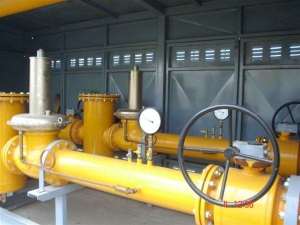On Saturday, the government has decided to raise VAT by 5%, from 19% to 24%, after the Constitutional Court decided that the government decision to cut pensions by 15% was unconstitutional. The flat tax rate has remained unchanged at 16%.
The raise of the VAT will come into effect on July 1st, through an emergency ordinance which amends the current Tax Code.
The minister of Finance, Sebastian Vlădescu, said that the hike of the VAT will increase budget revenues by 3.4 and 4 billion Euros by the end of the year: "For now this amount is needed and will allow us to keep the budget deficit at 6.8%".
Sebastian Vlădescu added that after the increase of the VAT, both the GDP and inflation forecast will need to be revised stating that for now, the government has no plans to raise other taxes.
The advisor to the NBR governor, Adrian Vasilescu, warned that inflation could raise to a two figure level again, after many years of efforts to stabilize it, forecasting an inflation rate of 10%-12% this year, as a result of the VAT increase.
• What businessmen say
Professional associations claim that raising VAT will not increase budget revenue, quite the opposite, leading to an increase in tax evasion, layoffs and price hikes.
Food prices would increase 5%, as would fuel prices.
AS consumption is expected to decrease, some businessmen claim that prices will not increase, but the quality of goods sold will drop.
Sorin Minea, the chairman of the Federation of Professional Associations of the Food Industry -Romalimenta, said: "The food industry can hardly be called profitable since the beginning of the crisis. Massive reorganizations occurred, and this process will continue, due to the 5% hike of the VAT. People will be laid off because the food industry will produce less, due to lower consumption. Lowering output on a production line means higher costs. Consumers will opt for lower quality products, because they cost less".
Sorin Minea said that in the near future, food prices will increase by at least 5%, and that we can not expect prices to remain steady, even if consumption drops, because the industry has reached the limit of profitability.
The financial strain on consumers will increase at least 20%, says Sorin Minea, because prices will not only increase for food, but for electricity, and fuel, once the VAT raise comes into effect.
"Bread consumption will increase at least 10%. What"s more, tax evasion will increase by 5% or 10%. Many players in the food industry will close down. The business environment will become a mess", says Aurel Popescu, the chairman of Rompan.
• What bankers think
Bankers are ready to support their customers by restructuring loans (rescheduling payments, grace periods), if the hike of the TVA to 25% will lead to an increase in prices, affecting borrowers" ability to payback loans.
Radu Graţian Gheţea, the chairman of the Romanian Banking Association, and of CEC Bank, said: "We remain ready to help our customers that are facing shrinking revenues, in one form or another. We were initially considering restructuring the loans of one social layer (ed. note: public sector workers), but at the moment, it seems that revenues and purchasing power will be affected on a larger scale, and the payback of loans will become more difficult".
In turn, the chairman of Bancpost, Mihai Bogza, said: "It"s true that any event that leads a drop in the population"s real earnings, whether it"s wage cuts, rising unemployment, the erosion of the purchasing power through increasing inflation, without the appropriate indexation of wages, could lead to an increase in the level of non-performing loans".
Adrian Vasilescu, the advisor of the governor of the NBR, Mugur Isărescu, said that, in theory, prices could rise 2-3% above the 5% predicted level, because some retailers might panic.
• What"s waiting for us
The last choice of the government adopted by the executive - raising VAT from 19% to 24% - is an inexcusable mistake! The increase of the VAT by one quarter will have the following


















































